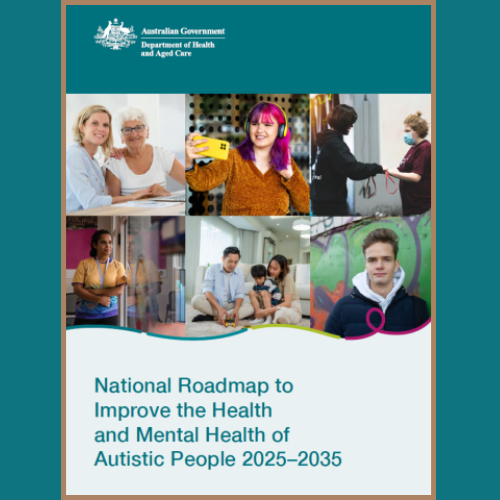Today I met with Minister Mark Butler’s office, who now holds both the Health and NDIS portfolios. This change with the Department of Health recently taking over responsibility for Disability may mark a significant shift in how these issues are being approached.
While there are understandable concerns that disability could become medicalised under Health, I did find their co-design approach for the Autism Health Roadmap to be one of the better government working experiences I’ve had and a reminder that meaningful collaboration is possible when Autistic expertise is genuinely valued.
Given recent NDIA announcements of reforms that directly impact Autistic people, it would have been impossible to meet and not have that included in our discussion. I reached out to Mark Peitsch and Samantha Connor AM who both are well known NDIA advocates with a far greater knowledge than I possess. I was very grateful to have Samantha join the meeting.
The meeting was very positive and it went overtime, which is always a good sign with strong Autistic representation in all our multi-faceted gloriousness. We highlighted the need for government to stop with their mirror-seeking (appointing people who simply reflect back what they want to hear) and instead to tap into the passionate subject expertise that already exists within our Autistic community. Samantha is now putting together a follow-up list for them, of Autistic people, with specific expertise in topics.
Autism Health Roadmap
The Autism Health Roadmap was developed to ensure that Autistic people receive appropriate, respectful, and accessible healthcare across all life stages. It sets out practical actions to improve health outcomes from sensory-friendly healthcare environments to better training for health professionals and stronger pathways between mental health and disability supports.
Despite widespread support for the Roadmap, it has never been funded. This means its goals remain on paper only, while Autistic people continue to face barriers to care, misdiagnosis, and lack of understanding in health settings.
We made it clear that dedicated funding is urgently needed to bring this work to life, along with proper acknowledgment of the Core Group who helped shape it, and alignment with the upcoming National Autism Strategy.
NDIA & Disability Reforms
We also discussed current challenges within the NDIA, including delays, inconsistent decision-making, and poor understanding of Autistic needs. With Health now overseeing Disability, there is an opportunity to build stronger bridges between health and support systems if the reforms are done right.
One initiative that’s been getting a lot of attention lately is the “Thriving Kids” initiative, which is part of broader child development and early intervention reforms. There’s been plenty of noise about it, but for many Autistic families, there’s also concern about whether these reforms will truly value neurodiversity. We stressed that the messaging and representation around these reforms matter deeply to our community.
Next Steps
We agreed to continue this conversation and follow up with key actions. Overall, it was a productive meeting that was respectful, honest, and a reminder that progress happens when Autistic people are genuinely included in shaping policy, not just consulted after the fact.
Author’s Note:
Being part of the Autism Health Roadmap work reminded me how much difference it makes when Autistic lived experience is not just heard but centred. My hope is that this next chapter, with Health taking on the disability portfolio, brings genuine partnership and lasting changes and not just another reshuffle of systems.

